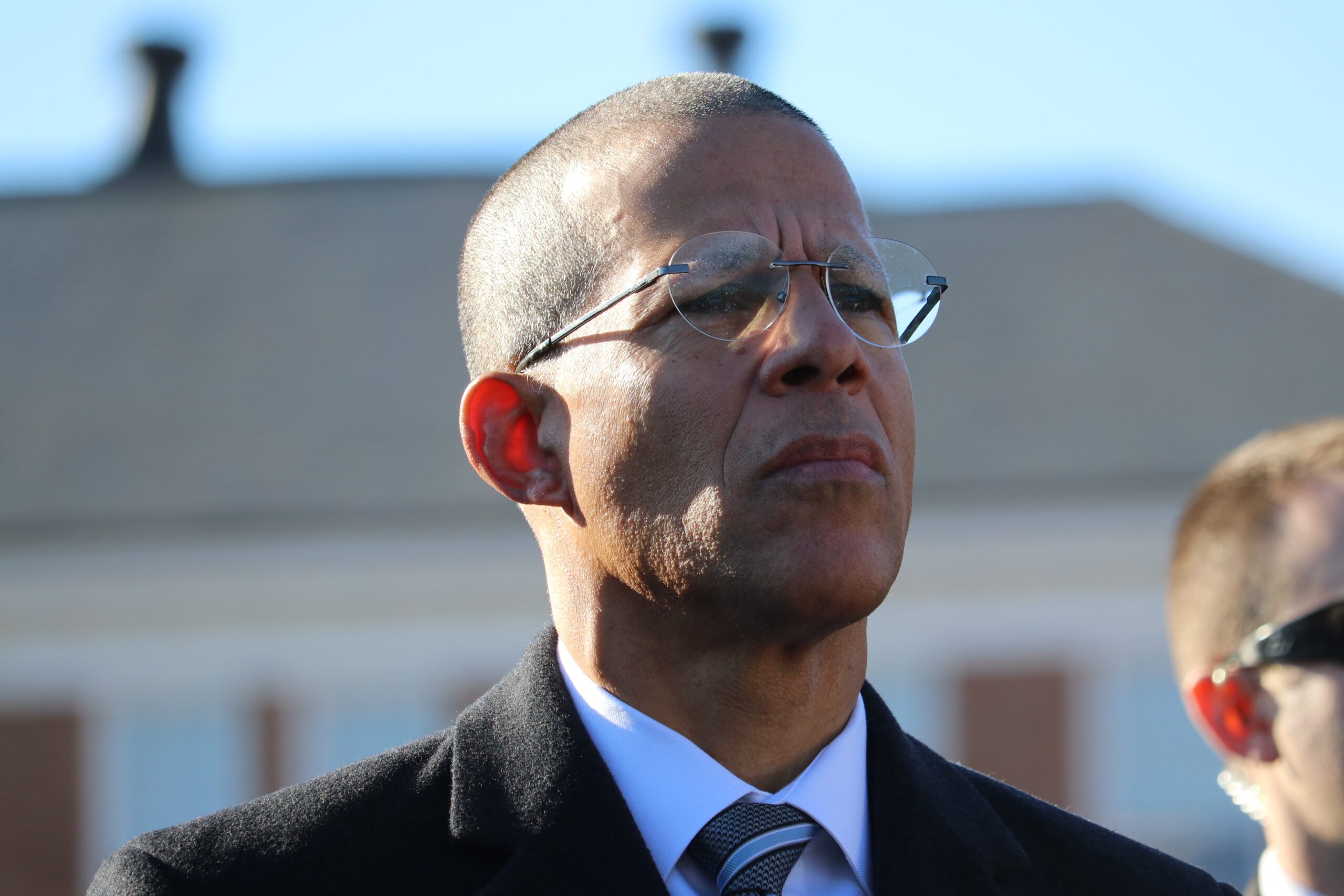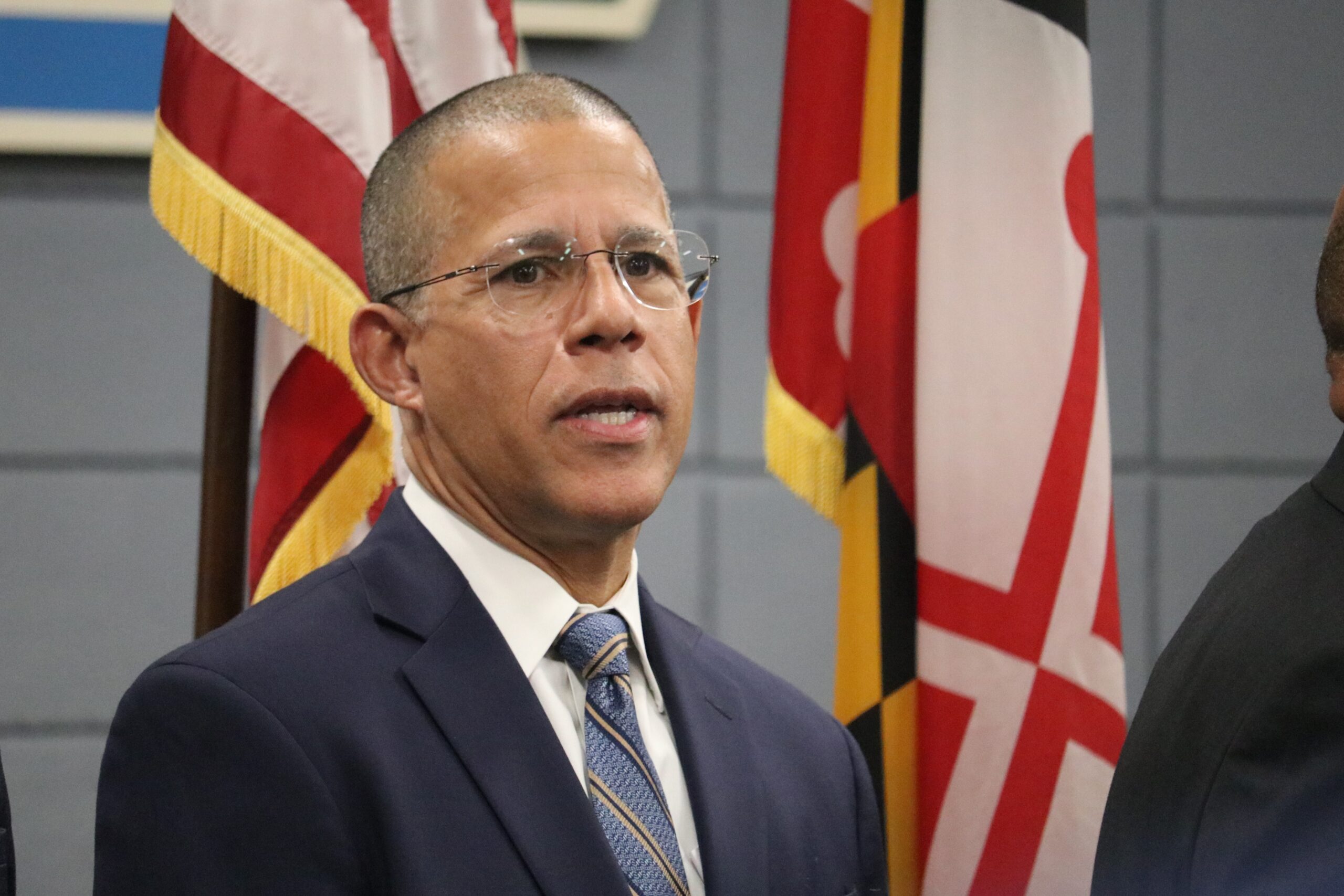Maryland Attorney General Brown headlines conference to improve state’s correctional system

With about four months left until the Maryland General Assembly convenes in Annapolis for its 90-day legislative session, attendees at an all-day conference in Baltimore will discuss and provide policy recommendations to improve the state’s correctional system.
The forum on Saturday, Sept. 9, at the University of Baltimore School of Law is scheduled to include breakout sessions on reforming state prison and parole policies, enhancing educational opportunities for incarcerated individuals and expanding innovative approaches such as restorative justice.
The Maryland Alliance for Justice Reform, a volunteer organization that advocates for changes in the state’s correctional system, will host the all-day conference titled “Beyond Confinement: Rethinking Corrections & Rehabilitation in Maryland.”
Some of those scheduled to participate are Robert M. Bell, retired chief judge from the Maryland Court of Appeals (now the Maryland Supreme Court); state Sen. William C. Smith Jr. (D-Montgomery), chair of the Senate Judicial Proceedings Committee; and Carolyn Scruggs, secretary of the state Department of Public Safety and Correctional Services.
As of late last week, about 180 people were registered to attend the conference with a capacity of 250.
“We’re thrilled to be partnering on such a timely and important topic,” said Heather Warnken, executive director of the University of Baltimore Center for Criminal Justice Reform. “We’re having this conference at the time of a significant administration change. I hope that the day is an opportunity to not just hear from the speakers, but really dialogue with them.”
Attorney General Anthony Brown (D) will speak at a plenary session with a focus on “correctional oversight.”
During an interview last week, the attorney general said his office “plays an important role” when it comes to correctional facilities and various programs conducted by Department of Public Safety and Correctional Services and the state Department of Juvenile Services.
“We want to be a part of that conversation on what we can do to improve the way that we supervise and care for and rehabilitate offenders in Maryland,” he said.
Part of his remarks will note continued support for legislation to create a correctional ombudsman unit, which was co-sponsored this year by Baltimore County Sens. Shelly Hettleman (D) and Chris West (R).
Senate Bill 87, which sought to establish a division in the attorney general’s office to oversee the state Department of Corrections, passed almost unanimously in the Senate in March but died in the House Rules Committee. According to the legislation, which was sponsored in the House of Delegates by Del. Debra Davis (D-Charles), it would require money in the state budget to hire a full-time ombudsman and provide staff, equipment, supplies and general operating expenses.
Brown said he supports reintroducing that legislation when the legislature convenes in January. He said a goal would be for a correctional ombudsman to mirror the Juvenile Justice Monitoring Unit, an independent agency within the attorney general’s office. As in that unit, the correctional ombudsman employees would be permitted to make announced and unannounced inspections and visits to facilities, assess programming and to report to the General Assembly.
“I don’t think it’s imperative the correctional ombudsman resides in the office of the attorney general, although with the resources we would welcome that,” Brown said. “The more important thing is that it’s independent of the [Department of Public Safety and Correctional Services].”
Olinda Moyd, a professor at American University Washington College of Law and who helped work and advocate for the ombudsman bill during this year’s session, said oversight problems at Maryland prisons remain.
The attorney general’s office announced in May that 15 people were indicted for smuggling fentanyl, methamphetamines and other prohibited items into the Roxbury Correctional Institution in Hagerstown. Those charged were 10 people incarcerated at the prison, four outside facilitators and a prison staff member.
The Board of Public Works voted July 5 to approve a $13 million settlement due to allegations of unpaid wages by state correctional employees. The investigation by the U.S. Department of Labor started in 2018.
“Why do we need oversight? Because these things continue to happen,” said Moyd, a board member with the Maryland Alliance for Justice Reform, also known as MAJR.
Crystal Francis, vice president of MAJR, said another goal is to move the state prison system to a “human-centered approach” such as providing rehabilitation programs instead of punitive measures like solitary confinement. In addition, Francis said education, housing and employment resources and services should be readily available for those incarcerated and when they leave prison as returning citizens.
“When people come into prison with substance abuse and then come out with the same thing, then the correctional system failed,” she said. “We need to have those resources available for people so they won’t commit a crime again.”




 Creative Commons Attribution
Creative Commons Attribution